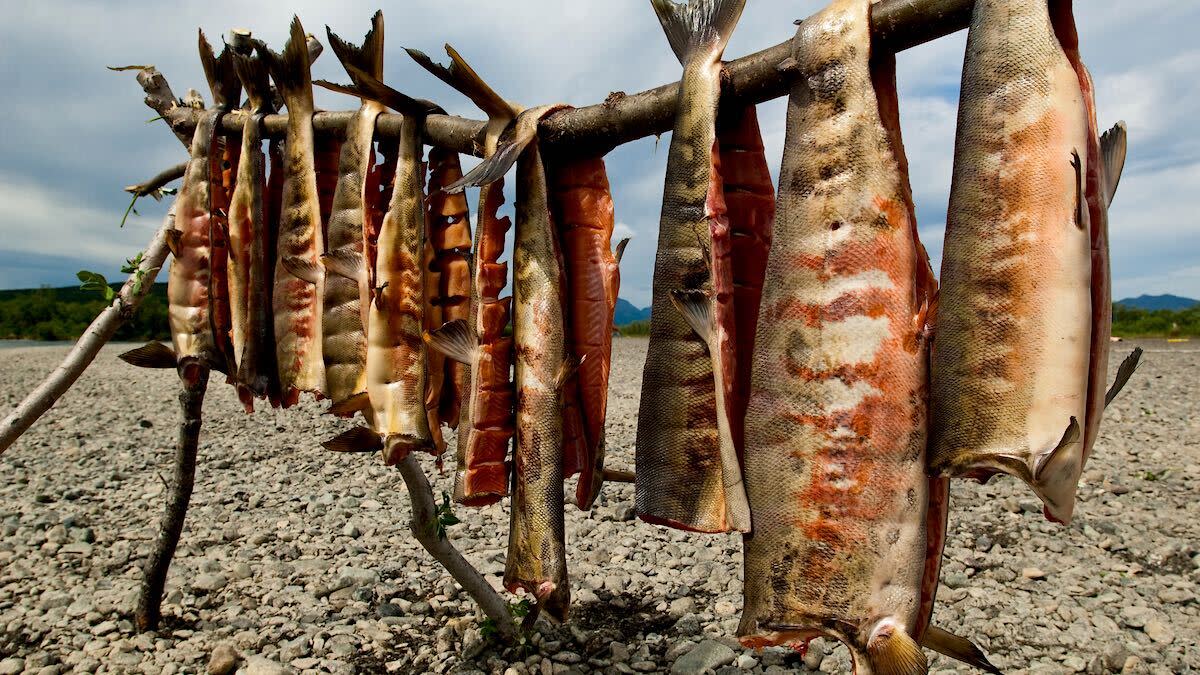EPA Moves to Block Pebble Mine, Again

The proposed Pebble Mine and its backers ran into another major obstacle today when the Environmental Protection Agency announced it would continue working towarddurable Clean Water Act protectionsfor Alaska’s Bristol Bay Region. Conservation groups, especially those that brought the successful lawsuit, celebrated a big win in theirdecades-long fightagainst this potentially catastrophic project in one of the nation’s most pristine and bountiful landscapes.
If finalized, these Clean Water Act regulations could kill future prospects for developing the Pebble Mine.
“Today’s announcement by the EPA represents a victory for common sense. Blocking industrial-scale mining from Bristol Bay is the right thing to do for the Alaska Native Peoples who have depended on the fishery for millennia,” said Chris Wood, president and CEO of Trout Unlimited. “It is the right thing to do for the 17,000 family-wage jobs that the $1.6 billion commercial fishery provides. It is the right thing to for a place that provides half of all of the world’s wild sockeye salmon. Congratulations to the EPA for making the right call and to the thousands of people who fought tirelessly to protect Bristol Bay.”
This legal saga begs for a little backstory. In 2014, the EPA under the Obama administrationcompleted an assessmentof the potential mining impacts on the region’s salmon ecosystem and found the two incompatible. That initiated a process under a provision of the Clean Water Act topermanently preclude hard-rock miningin that location. The Canadian mining conglomerate Northern Dynasty Minerals, owner of the mining claim, sued and won asettlement agreementin 2017 from the Trump administration’s EPA to not pursue the pending mine ban. In 2019, the EPAformally withdrewthe 2014 “proposed determination,” allowing the Pebble Partnership to move forward and submit a mining permit application. Thatmine plan includedbuilding 13 square miles of tailing ponds, three ports, 80 miles of haul road, a natural gas pipeline, and a 270-megawatt powerplant in what is now mostly untouched wilderness.
At first, the Army Corps of Engineers appeared amenable to the permit terms in their final environmental impact statement in July 2020. Shortly after, private investigators posing as mine investorssecretly recorded executives of Northern Dynastyand Pebble Partnership bragging about their political influence in Juneau and Washington, D.C., and suggesting they’d lied in public statements and permit applications about the inevitable size, scope, and duration of the Pebble Mine. Pebble CEO Tom Collier resigned following the scandal.
Amid public pressure from prominent conservative voices including Tucker Carlson, Johnny Morris, and Donald Trump Jr., the Trump administration’s Army Corps ultimatelyrejected Pebble’s permit applicationin November 2020.
Back in 2019, Trout Unlimited, along with other conservation, tribal, and fishing groups,sued the EPAover its “politically-motivated” removal of the 2014 findings indicating that Pebble would have devastating effects on the Bristol Region. The Ninth Circuit Court of Appeals ruledin favor of TUin July 2021. The EPA announced today that they wouldresume the processof instituting Clean Water Act protections for Bristol Bay that began in 2014.
“The Bristol Bay Watershed is an Alaskan treasure that underscores the critical value of clean water in America,” said EPA Administrator Michael S. Regan. “Today’s announcement reinforces once again EPA’s commitment to making science-based decisions to protect our natural environment. What’s at stake is preventing pollution that would disproportionately impact Alaska Natives and protecting a sustainable future for the most productive salmon fishery in North America.”
Northern Dynasty has fought long and hard to dig a mile-wide, open-pit mine in a high saddle separating the Upper Talarik Creek and Koktuli River drainages. Fifteen miles south, Talarik empties into Iliamna, the largest lake in the largest state, which drains out the Kvichak River into the head of Bristol Bay. The north and south forks of the Koktuli ring the Pebble site before joining and flowing northwest into the Mulchatna, a large tributary of the massive Nushagak River, also among the biggest salmon producer in the world.
This year saw the most sockeye salmon return to Bristol Bay in recorded history. Those65 million fishfed a massive web of ecology underpinning the entire southwestern mainland of Alaska, as well as a supply chain sustainably providing high-quality protein to humans nearly everywhere on Earth. Alaskan sockeye is surpassed in demand and quality only byAlaskan Chinook, which are unfortunatelyon the declinein the region. The three other species of Pacific salmon, coho, chum, pink, also create subsistence, commercial, and sport fishing opportunities, alongside nativerainbow trout,Dolly Varden,grayling,lake trout,pike, and more. Hunters also pursuecaribou,moose,Dall sheep,brown bears,black bears,wolves,ptarmigan,waterfowl, and more in the same valleys.
“Today’s EPA action is a significant step in the decades-long campaign to secure protections for Bristol Bay,” said Scott Hed, sporting outreach coordinator at Businesses for Bristol Bay. “Support from the hunting and angling community has been critical in getting us to this point. Sportsmen and women have worked with presidential administrations of both parties because this isn’t a partisan issue.”
However, Hed emphasized that the war is not yet won: “While we should surely raise a glass and celebrate today’s great news for Bristol Bay’s fish and game, we must keep our foot on the gas pedal. We’ve been close before only to see the process derailed. Thank you, EPA, for following the science and listening to Americans from Bristol Bay and across the nation. Now we need President Biden and his team to see this process through to its logical end so one of the planet’s true bucket-list sporting destinations is at last protected for future generations.”
Right now, you can sign theBristol Bay Challengepetition calling on the EPA to decisively veto the Pebble Mine. Those who sign will be entered to win $16,000 in outdoors gear and other prizes, including MeatEater’s donation of seven books written and signed by Steven Rinella.
Feature image via Tosh Brown.
Shop
Sign In or Create a Free Account
Related

Environmental Issues
Pebble Mine Permit Denied, Conservationists Seek to Bury it Forever

Public Lands & Waters
The EPA Wants Your Input on Permanently Protecting Bristol Bay

